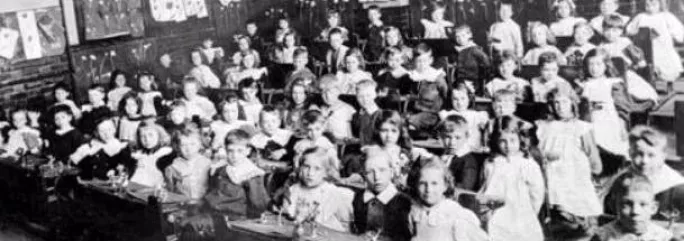School places crisis: Councils forced to borrow millions to meet shortfall
Councils are being forced to borrow tens of millions of pounds and even open schools in former police stations in a bid to meet a shortfall in school places, a report has shown.
Figures also reveal that a third of councils will not have enough secondary school places to meet demand over the next five years.
Research published today by the Local Government Association (LGA) reveals that more than 80,000 secondary school places will be needed in the next five years, and it is calling for councils to be handed a pot of money to try and meet demand.
Until now the debate has been focused on meeting the need to provide enough primary school places due to a bulge in children going through the primary sector fuelled, in part, by a rise in birth rates.
The government has committed £2.35 billion to provide places up to 2017, but the LGA has warned it is not enough to ensure there is enough capacity among secondary schools as the children move through the system.
And according to the study, Reading Borough Council has been forced to borrow £34.5 million to ensure its schoolchildren have places in permanent buildings, while Essex County Council had to supplement government spending to the tune of £38.7m from elsewhere in own budgets.
Brighton and Hove council has resorted to converting a former police station into a school, the report adds. Other schools have been forced to turn IT and music rooms into makeshift classrooms in order to meet the demand.
The LGA claims the problem lies with the government’s insistence that all new schools must be either an academy or free school. Town halls cannot force existing academies to provide places, and that this, combined with funding shortfalls, has led to concerns over the number of secondary places.
Councillor David Simmonds, chairman of the LGA’s children and young people board, said councils had “done everything in their power” to ensure there are enough places.
“Councils created almost 90,000 additional primary places during the last academic year, but with about 130,000 still needed, we will not rest until there are enough places,” he said.
“However, as children move through primary school, securing new secondary places will become a significant issue.”
The issue over school places was highlighted by TES in its feature, which revealed some councils were even considering introducing shifts in schools.
The NUT said it was “increasingly obvious” that the government’s free school and academies programme was causing “untold damage” to school place planning.
“The LGA report shows that local authorities are in the invidious position of having to cram more children into already crowded classrooms, or putting portacabins on school playgrounds to accommodate additional pupils. This is a ridiculous state of affairs,” NUT general secretary Christine Blower said.
A recent National Audit Office report showed that a quarter of all free schools had opened in areas where there was no need for additional school places, while less than a fifth of secondary free school places had opened in areas with the greatest squeeze on places.
Natalie Evans, director of the New Schools Network, a charity that helps groups open free schools, said: “Over two-thirds of free schools are being set up in areas where there is a shortage of school places and local authorities themselves are able to invite groups to come forward to set up new schools where that shortfall is particularly acute.
“There are many good examples of local authorities working in partnership with groups setting up Free Schools, but too often authorities perceive these schools as a threat and end up being an unnecessary obstruction to a solution which would work for all.”
Keep reading for just £1 per month
You've reached your limit of free articles this month. Subscribe for £1 per month for three months and get:
- Unlimited access to all Tes magazine content
- Exclusive subscriber-only stories
- Award-winning email newsletters




